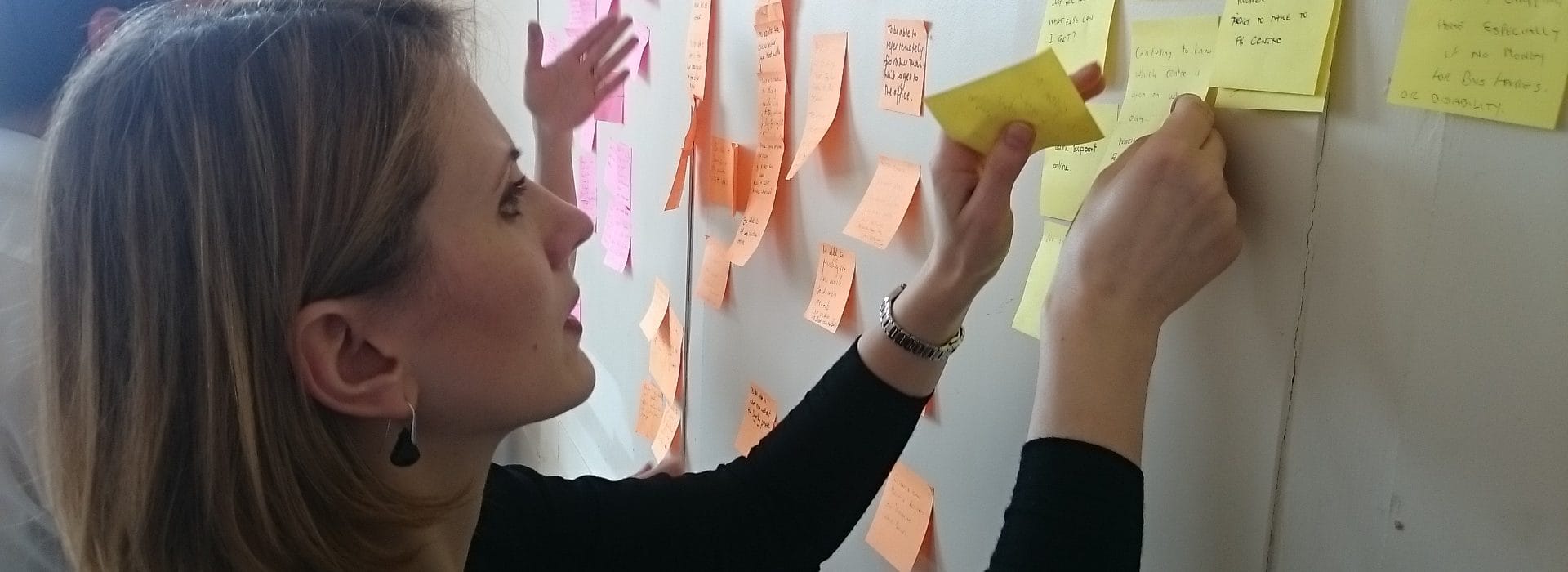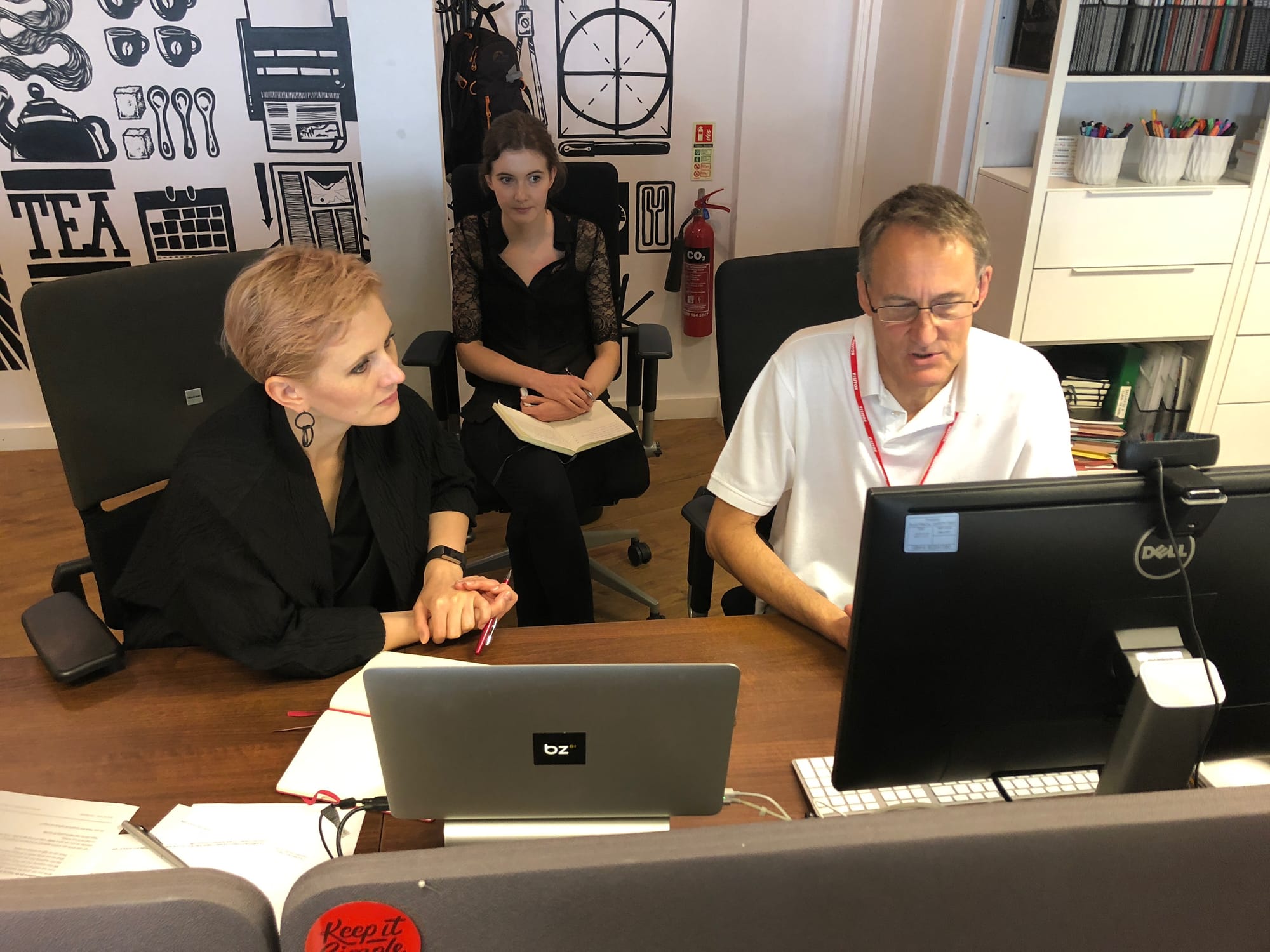· · Laura Paplauskaite · 3 min read
Discover more: why running a discovery gives your project the best start

Have you ever worked on a digital project that’s “gone wrong”? Perhaps a late launch, a blown budget, or a service which, in the end, didn’t actually do what users wanted. Although these kind of issues tend to appear towards the end of a project, the root cause can often be found at its beginning.
An effective way to reduce the risk of problems emerging is to start your project with a discovery phase. Many organisations take this approach, including UK Government digital teams and us here at Bit Zesty.
All stages of a project are important, but the discovery phase is the foundation of your digital service. It’s where you build your understanding of the problem you’re trying to solve, get to know your users, challenge assumptions, and ultimately decide whether or not the project should go ahead.
Once discovery is completed, the project team can approach the next stage with a shared understanding of the problem and solution, framed around users’ needs.
5 reasons to run a discovery
Once a project to create a new digital service has got the go-ahead, it’s incredibly tempting to jump straight in. However, bear in mind that your organisation (and your users) could be living with this service for years. It’s worth spending a few weeks up front to make sure you really understand your users and the project ahead.
Here are 5 reasons we start with discovery:
- Discovery challenges assumptions
Everyone will have preconceived ideas about what users need and what the solution should look like. Without a user-centred discovery phase, it’s easy to end up building the service you think users want, rather than the one they actually need. You may find out the solution you need is actually very different to the one you thought you needed. - Discovery makes sure everyone’s focussed on the user
Carrying out thorough user research, and developing user personas and user journeys, is the main purpose of discovery. By the end of the discovery phase everyone on the project team should have a shared understanding of your different users groups – who they are, what they need from the service you’re creating, and what their current pain points are. - Discovery helps you understand your digital service’s environment
During discovery you explore the environment the digital service will have to operate in. You might research organisational, financial, technical, political or legal factors. What opportunities or restrictions do these present? How might they shape the solution? - Discovery helps you scope your service
Your research into user needs and the environment will help you work out what should be in and out of scope for your digital service and it helps you to prioritise all the work that needs to be done. - Discovery helps you decide whether to carry on with the project
Sometimes, what your discovery tells you is that the project shouldn’t go ahead. You may discover constraints that make the project impossible, or find that the solution wouldn’t be cost-effective, or users may tell you they don’t actually need the proposed service.
Leave your assumptions at the door
Discovery is a research exercise, not a validation exercise. If you go out looking for evidence that your existing assumptions are right, you’ll probably find it. This includes the assumption that the project should be going ahead.
It’s crucial to keep an open mind, though this can be challenging if you’re too close to the project or if your stakeholders have already decided the outcome they want.
Discovery is your chance to challenge assumptions. Carry out thorough user research. Focus on what users are telling you, rather than what you think you already know. You may want to consider asking a third-party to help you run the discovery. They’ll bring fresh eyes and will be able to approach the discovery with no prior assumptions. As an added advantage, it’s often easier for people from outside the organisation to feed back inconvenient truths to senior stakeholders!
Give your project the best start
If you’d like to find out more about discovery, take a look at our approach to building digital services, from discovery to launch.
At Bit Zesty, when we’re building a digital service for a client, we’ll normally start by running a discovery. We also work with organisations who just want our help on the discovery phase of a project, using our expertise and fresh eyes to give their digital service the best start.
If you’d like to discuss a project with us, please get in touch.
Do you need help with your application?
At Bit Zesty, we specialise in building and maintaining bespoke software and integrating AI into existing applications.
Looking to build an application, but unsure of the price? Keen to discuss our experience, processes and availability?
![User Feedback Analysis: Step-by-Step Guide [2025]](/_astro/user-feedback-analysis-step-by-step-guide-0.D92IQlYu.jpeg)

